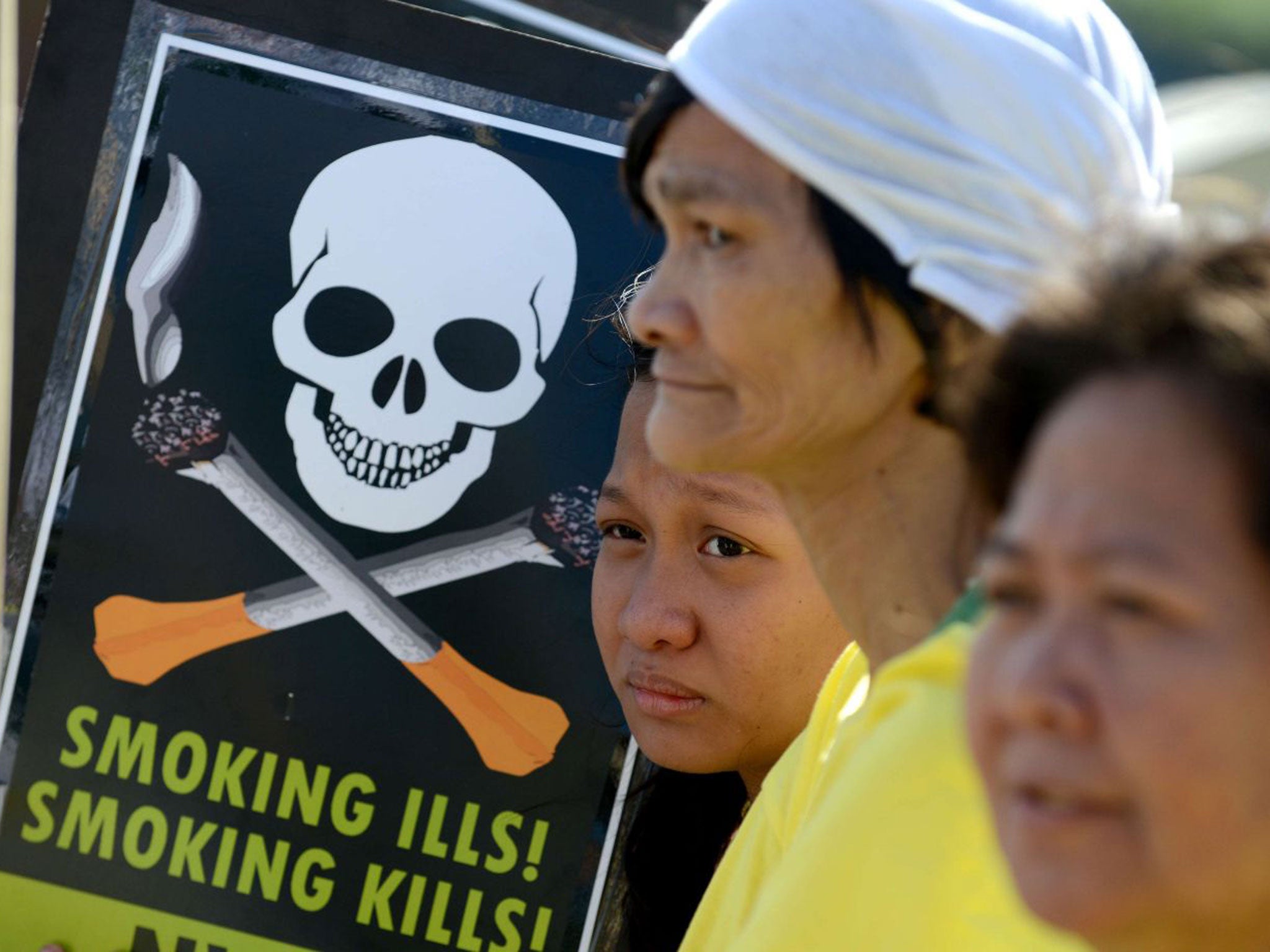WHO concern at Philippine's support for tobacco fair
The Philippines has a strong tobacco industry, but it pledged to ban advertising

Your support helps us to tell the story
From reproductive rights to climate change to Big Tech, The Independent is on the ground when the story is developing. Whether it's investigating the financials of Elon Musk's pro-Trump PAC or producing our latest documentary, 'The A Word', which shines a light on the American women fighting for reproductive rights, we know how important it is to parse out the facts from the messaging.
At such a critical moment in US history, we need reporters on the ground. Your donation allows us to keep sending journalists to speak to both sides of the story.
The Independent is trusted by Americans across the entire political spectrum. And unlike many other quality news outlets, we choose not to lock Americans out of our reporting and analysis with paywalls. We believe quality journalism should be available to everyone, paid for by those who can afford it.
Your support makes all the difference.International health officials have expressed deep concern that the government of the Philippines appears to be condoning smoking by hosting one of the world’s largest tobacco trade shows. The World Health Organisation has written to President Benigno Aquino, pointing out that the Philippines has pledged to ban tobacco advertising, promotion and sponsorship.
The ProTobEx Asia show, which claims it will feature some of the latest innovations from the world of cigarette making and packaging, opened on Wednesday in the Pasay district of Manila, the capital. It is the second year in succession that the country has hosted the fair, which is said to attract some of the industry’s biggest players.
“The Philippines has a vibrant tobacco industry. Tobacco has played, and continues to play, an important role in the domestic economy, earning millions of dollars for the country,” says the ProTobEx website. “There is a long and rich history of tobacco cultivation dating back hundreds of years, and the Philippines produces a wide variety of tobacco types from a strong and resilient agricultural base.” One of the event’s organisers is also reported to have praised the “phenomenal” support of the Pasay city authorities.
Eigil Sorensen, an adviser to the WHO, said the government of the Philippines was a signatory to the international Framework Convention on Tobacco Control, which bans tobacco advertising and promotion. “It’s important there is no official endorsement by the government of the tobacco event,” Mr Sorensen told the AFP. “If there is a government endorsement, it might be seen as a mixed signal.”
The Philippines has one of the highest smoking rates in Asia and some of the lowest prices for cigarettes. About 14 per cent of its 100 million-strong population smokes and there are said to be 10 smoking-related deaths an hour. The country is home to several major cigarette and cigar manufacturers, including PMFTC Inc, owned by Philip Morris International Inc. In 2010 it bought the local Fortune Tobacco company.
Mr Sorensen said the government had overseen efforts to reduce smoking among the young – a move that had seen the numbers of Filipino youths who smoke fall from two out of 10 in 2007 to one in 10 today. Last year, the authorities passed new legislation that substantially raised the tax on cigarettes and other forms of tobacco, with the money going towards a new health care programme. Yet smoking among the young remains a major problem.
The Associated Press reported that the authorities in Pasay had waived a ban on indoor smoking at the venue. Meanwhile, the media was barred from the event and anti-smoking protesters held a rally outside.
Join our commenting forum
Join thought-provoking conversations, follow other Independent readers and see their replies
Comments